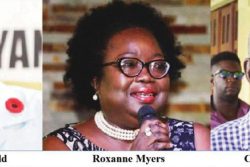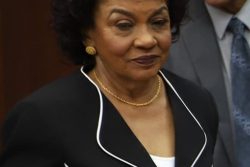BELFAST, (Reuters) – A police officer was shot dead in Northern Ireland late yesterday, just hours after Prime Minister Gordon Brown said the killing of two British soldiers would not derail the peace process.
The officer was shot dead when he was out on patrol in Craigavon, around 25 miles (40 km) southwest of the Northern Ireland capital Belfast, a police spokeswoman said.
There was no immediate word on whether the policeman was killed by Republican dissidents, following the shooting on Saturday of the two soldiers by gunmen opposed to the peace process in the British-ruled province.
But a senior politician said the police officer was likely to have been killed by dissident Republicans.
“We are tonight staring into the abyss and I would appeal to people to pull back,” said Dolores Kelly, a member of Northern Ireland’s policing board, and a member of the nationalist SDLP party.
Brown, visiting the army base in Antrim where the two soldiers died, said yesterday “the political process will not and can never be shaken”.
There are no plans to put troops back onto the streets of Northern Ireland, a senior British army officer said, as leaders tried to ensure that shooting of the soldiers did not reverse progress made since the Good Friday peace deal in 1998.
The soldiers were shot dead by gunmen from the Real IRA republican splinter group, hours before they were due to fly to Afghanistan.
The IRA, which fought British rule for decades and drew support from the minority Roman Catholic community, and pro-British Protestant guerrilla groups agreed to ceasefires under the 1998 deal.
The agreement helped to greatly reduce sectarian violence, which had killed more than 3,600 people in Northern Ireland since the late 1960s.
The Real IRA wants an end to British rule and a united Ireland, but is shunned by the province’s politicians who have put aside years of enmity to work together in a devolved national assembly.
The Real IRA carried out the deadliest single bombing of the sectarian violence, in the market town of Omagh in August 1998. Twenty-nine people were killed.
Northern Ireland Secretary Shaun Woodward described Saturday’s attack as a “pre-meditated attempt at mass murder”, saying two masked gunmen had fired more than 60 shots.




